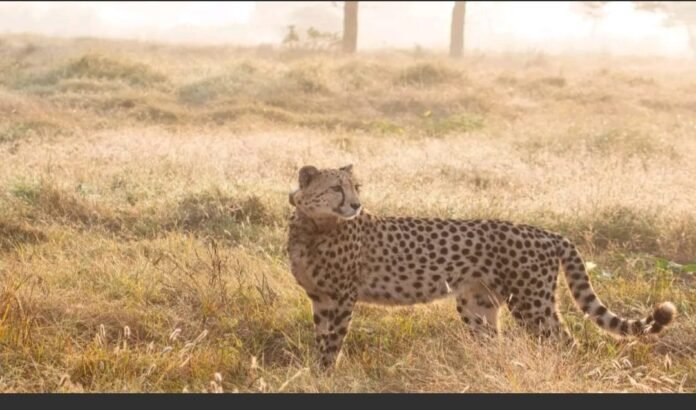India’s Project Cheetah, an ambitious initiative aimed at reintroducing cheetahs to their native habitat, has encountered numerous challenges along the way. Despite these obstacles, the project has made remarkable progress, showcasing India’s commitment to wildlife conservation and biodiversity restoration.
Addressing Habitat Concerns: One of the primary challenges faced by Project Cheetah has been identifying suitable habitats for the reintroduction. The cheetah requires expansive grasslands and thriving prey populations to thrive. The project has focused on areas like the Kuno-Palpur Wildlife Sanctuary in Madhya Pradesh, where efforts are underway to create and safeguard appropriate habitats for these magnificent big cats.
Mitigating Human-Wildlife Conflict: Ensuring the safety and coexistence of reintroduced cheetahs with human communities has been a crucial concern. Project Cheetah has implemented various strategies to address potential conflicts, emphasizing community involvement and raising awareness about the importance of conservation. These initiatives aim to promote harmonious interactions and reduce instances of human-wildlife conflict.
Collaboration and Learning: Recognizing the value of international expertise, India has collaborated with renowned organizations and experts from successful cheetah reintroduction projects worldwide. By studying and learning from these initiatives, Project Cheetah gains insights into effective strategies, allowing for an informed and comprehensive approach to cheetah conservation in India.
Legal and Administrative Support: A significant milestone for Project Cheetah was the approval received from the Supreme Court of India in 2021. This legal backing provided crucial support and streamlined administrative processes, giving the project a solid foundation to move forward with its reintroduction efforts.
Ecological Significance: The reintroduction of cheetahs in India holds immense ecological significance. Not only does it restore a missing piece of India’s natural heritage, but it also contributes to the conservation of grassland ecosystems. Cheetahs, as apex predators, play a vital role in maintaining the balance of the ecosystem, making their reintroduction a crucial step towards restoring ecological harmony.
Inspiration for Global Conservation: India’s efforts in Project Cheetah serve as an inspiration for global conservation initiatives. The country’s dedication to restoring its biodiversity and protecting endangered species sets an example for other nations to follow. By collaborating, implementing effective policies, and engaging local communities, India showcases a comprehensive approach to wildlife conservation that can be replicated worldwide.
Despite encountering various challenges, Project Cheetah in India has made remarkable progress in its mission to reintroduce cheetahs. By addressing habitat concerns, mitigating human-wildlife conflict, and collaborating with international experts, India is setting significant milestones in wildlife conservation. The reintroduction of cheetahs not only restores a vital component of India’s natural heritage but also highlights the nation’s commitment to protecting endangered species and promoting ecological harmony.

